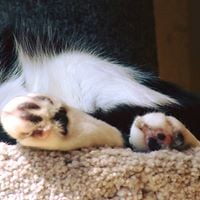Where was the writer Julio Cortázar born?
Julio Florencio Cortázar was born on 26 August 1914, in Ixelles, Brussels, Belgium, and died on 12 February 1984 in Paris, France. His parents, Julio José Cortázar and María Herminia Descotte were Argentine citizens, and his father was attached to the Argentine diplomatic service in Belgium.
Cortázar was a novelist and short-story writer who combined existential questioning with experimental writing techniques in his works. He was educated in Argentina, where he is revered as a "national" writer. The metaphysical anguish that he feels in his search for artistic perfection and in his failure to come to grips with the passage of time, coupled with his rejection of 20th-century values, was among Cortázar’s central preoccupations.
Cortazar's "Bestiario" (1951; “Bestiary”), his first short-story collection, was published the year he moved to Paris, an act motivated by dissatisfaction with the government of Juan Perón and what he saw as the general stagnation of the Argentine middle class. He remained in Paris and received French citizenship in 1981, but he kept his Argentine citizenship and remained engaged with political causes in Argentina and Nicaragua.
Cortázar’s masterpiece, "Rayuela" (1963; "Hopscotch"), is an open-ended novel, or antinovel. The reader is invited to rearrange the different parts of the novel according to a plan prescribed by the author. It was the first of the “boom” of Latin American novels of the 1960s to gain international attention.
More Info:
en.wikipedia.org

